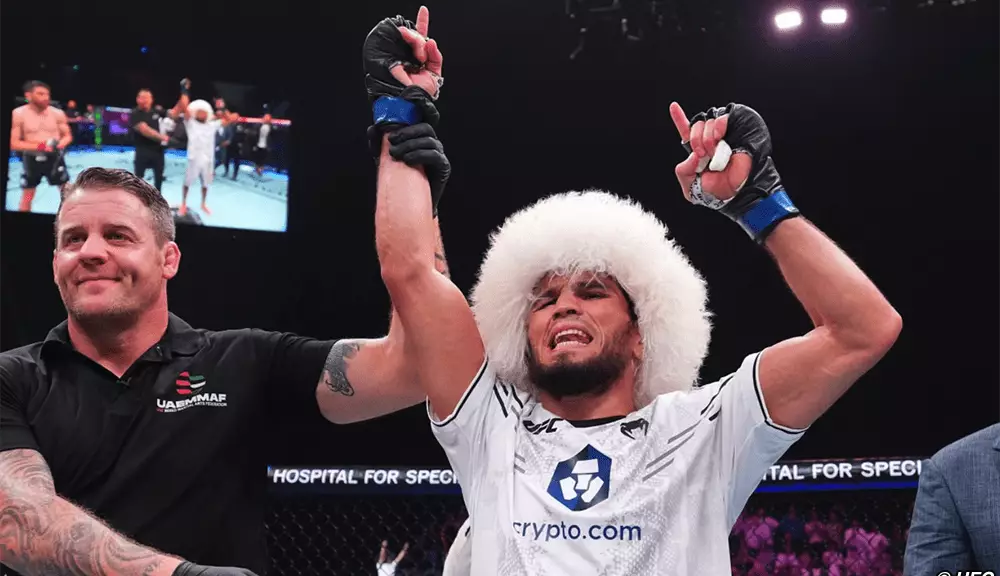The bantamweight division in the UFC has seen significant shifts in recent months, culminating in Merab Dvalishvili’s recent championship victory over Sean O’Malley at UFC 306. Dvalishvili’s win was characterized by a methodical and dominant performance that left little doubt of his superiority on that night. However, the aftermath of his title win has sparked confusion and intrigue, particularly surrounding the question of contenders, most notably, Umar Nurmagomedov. Despite being the No. 2 ranked fighter according to the UFC’s official standings, Nurmagomedov has been overlooked as Dvalishvili expresses a preference for other challengers.
Javier Mendez, the coach of Nurmagomedov, has voiced his bewilderment at Dvalishvili’s reluctance to fight his fighter. Mendez refrains from outright accusing Dvalishvili of fear. Instead, he emphasizes a fundamental tenet of championship ethos: true champions should be prepared to fight anyone the organization puts in front of them. Mendez’s perspective is grounded in the belief that rankings and promises made by the UFC should determine fight opportunities, rather than personal preferences or strategic maneuvering. He argues that if Dvalishvili wishes to be respected as a champion, he must adhere to the structure and expectations of title contention.
The central debate lies in Dvalishvili’s assertion that Deiveson Figueiredo is a more deserving opponent than Nurmagomedov. While Figueiredo certainly carries a considerable résumé, Mendez questions the rationale behind Dvalishvili’s claims, as it appears to conflict with the established rankings. This clashes with the sentiment that a championship opportunity should rightfully be awarded to the most qualified fighters based on their records and accomplishments, rather than merely a matter of preference. The post-fight interviews highlight an intriguing gap between the fighters’ perspectives and the organizational structure that governs title shots.
Both Mendez and fight fans are left scratching their heads, considering the implications Dvalishvili’s actions may have on the bantamweight division’s integrity. The divisional credibility hinges on the idea that fighters are willing to put their titles on the line against the best available contenders. Not addressing a challenger like Nurmagomedov could set a troubling precedent, suggesting that champions might pick and choose their battles, potentially undermining the sport’s competitive nature.
As the controversy unfolds, the focus shifts to whether the UFC will uphold its promises towards Nurmagomedov and propel him into a title shot against Dvalishvili. Fans and analysts alike await clarity on Dvalishvili’s next steps. The upcoming months are set to reveal more about not only the future of the bantamweight title but the very fabric of what it means to be a champion within the UFC today. Mendez’s call to action resonates: champions ought to embrace the challenges that come with their titles, a sentiment that will define the competitive landscape of the UFC moving forward.

